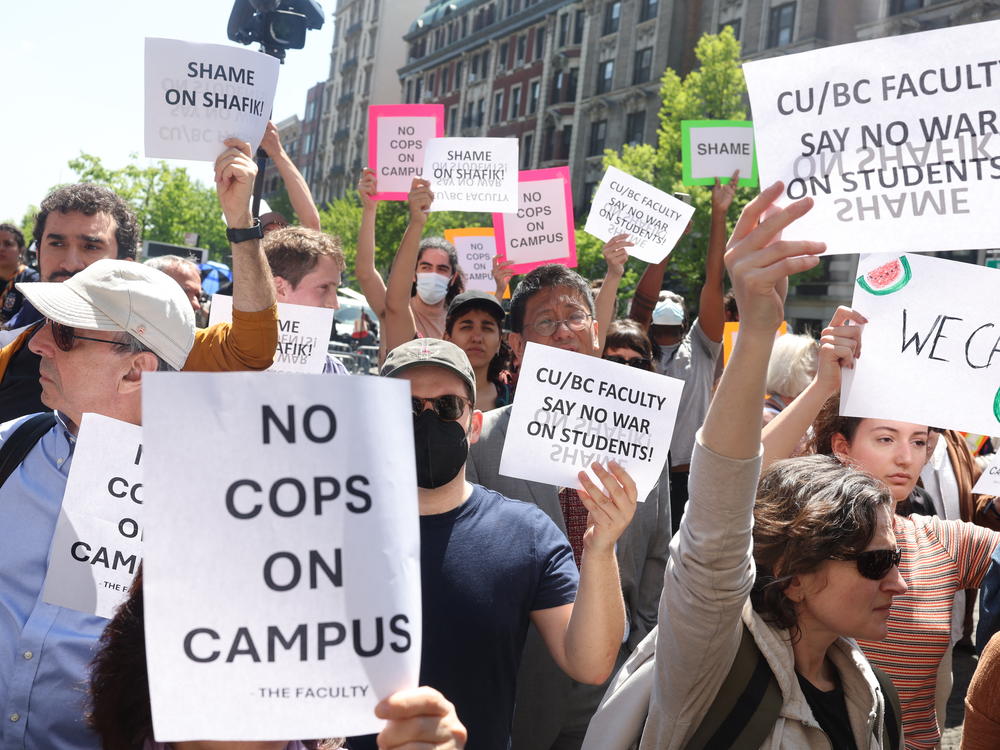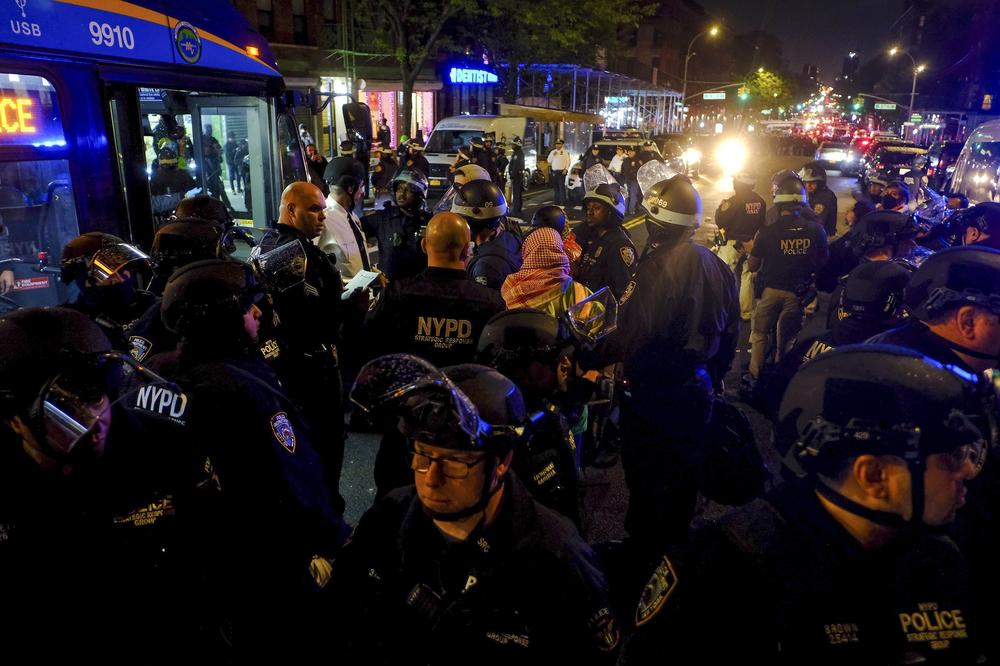Section Branding
Header Content
For weeks students have protested the war in Gaza — now things are escalating
Primary Content
You're reading the Consider This newsletter, which unpacks one major news story each day. Subscribe here to get it delivered to your inbox, and listen to more from the Consider This podcast.
1. How did we get here?
From New York, to Illinois, to Los Angeles, encampments in support of Palestinians dot campuses across the country. Broadly, the protesters want their universities to sell off their investments in companies that have businesses or investments in Israel.
These protests are only growing in scope and intensity, with many colleges calling on law enforcement to help. In some instances, police have used tear gas and pepper spray against students, and hundreds of arrests have been made nationwide.
Juliette Kayyem was a homeland security advisor during the Obama administration and for Massachusetts Governor Deval Patrick. Now, she's the Belfer Senior Lecturer in International Security at the Harvard Kennedy School of Government. She assesses national and international security threats.
Kayyem says a few factors play into what we're seeing now:
- Excessive use of force by some of these universities in the early stages, "sending the police out originally really provided no opportunity from going from basically, DEFCON five, which is peace to DEFCON one, which is war."
- That excessive force resulted in a backlash of criticism and protestors coming out in bigger numbers.
- There was also a failure by universities to "utilize sound de-escalation techniques" to protect the protests, to protect other students who may feel scared or uncomfortable by the protests, and ensure the overall safety of the community at large.
2. Escalations, and the narrative.
Tensions have reached a breaking point on many of these campuses.
At Columbia University, NYPD officers in riot gear, brandishing shields and zip ties, moved onto the encampment. They arrested dozens of people, and at one point used a large tactical vehicle to push a bridge into the window of the administration building students had taken over. In this case, Kayyem says the difference was that the students were breaking the law by unlawfully trespassing.
Now, a narrative that's come up during the protests is the idea that "outside agitators" are at play – and it's one we've heard not just about these campus protests, but also about so many other protest movements throughout history. Kayyem says that while there may be non-university affiliated people at these campus protests,
"To argue that what we're seeing on colleges and campuses is some outward force manipulating young people... I think undermines the capacity to de-escalate in these situations because it's sort of treating it as some like foreign alien that you can just get rid of," she says.
"We should give these students credit for their own minds and their own thinking."
3. Is de-escalation possible now?
Kayyem says yes.
"We're focusing on, at worst, a dozen colleges and universities. But if you look at where the protests are occurring, it's not [just] these elite colleges where we pay all of our attention. It is across the country."
She says that what we're seeing on campuses now is a reflection of the divisions in our foreign policy. "The argument that this is all for naught, or is this a bunch of noisy kids who have nothing better to do, or it's just outside influence, really undersells what's happening in this country."
She points to Brown University in Rhode Island as an example of de-escalation. There, the student encampments have disbanded after the University agreed to hold a vote later this year about divestment.
"Whatever you think of the protesters, the responsibility of leadership is to de-escalate. And I think what Brown showed itself willing to do is to actually listen, to not say 'it's outside agitators'...These are students with ideas." she says.
"And I think Brown's willingness to listen and to provide a forum outside of protests where the students can be heard – and that's going to be in the fall when the board meets – is essential and was essential for the students to feel like their university wasn't picking sides, but was willing to listen."
For sponsor-free episodes of Consider This, sign up for Consider This+ via Apple Podcasts or at plus.npr.org. Email us at considerthis@npr.org.


